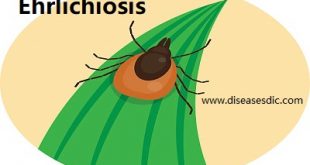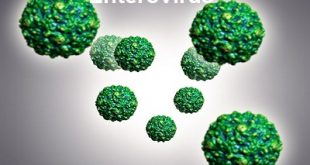Overview of Egg Allergy
Egg allergy is a medical condition characterized by an abnormal immune response to proteins found in eggs, most commonly the proteins in egg whites. When someone with an egg allergy consumes eggs or foods containing eggs, their immune system identifies these proteins as harmful invaders and triggers an allergic reaction. This reaction can range from mild to severe and can occur within minutes to hours after egg ingestion. Symptoms of an egg allergy can vary but often include skin reactions such as hives or eczema, gastrointestinal issues like nausea and vomiting, respiratory symptoms such as sneezing or coughing, and, in severe cases, life-threatening anaphylaxis, which can cause difficulty breathing, a drop in blood pressure, and loss of consciousness. Egg allergies are most commonly diagnosed in childhood and often resolve with age, although some individuals may continue to experience allergies into adulthood.
Managing an egg allergy typically involves strict avoidance of eggs and egg-containing products. Individuals with this allergy must carefully read food labels and inquire about ingredients when dining out to ensure they are not exposed to hidden sources of eggs. In cases of accidental exposure, antihistamines or epinephrine may be used to alleviate symptoms, especially if they are severe. It’s essential for individuals with egg allergies to work closely with healthcare professionals to develop a comprehensive management plan, including emergency action steps, to ensure their safety and well-being. While there is no cure for egg allergies, some people may eventually outgrow them, and advancements in food allergy research may provide new treatment options in the future.
Epidemiology
The confirmed prevalence of egg allergy among three-year-old children in an unselected population in Denmark stands at 1.6 percent. However, a subsequent meta-analysis estimating the prevalence of food allergies among young children suggests that egg allergy affects a range of 0.5 to 2.5 percent. This meta-analysis faced several limitations, primarily due to significant variations in study design that hindered direct comparisons. Most of the studies included in the analysis relied on self-reported instances of food allergies, a method known to overstate prevalence rates. Some studies employed skin prick tests and measurements of food-specific IgE levels to confirm sensitization to allergens, but not all diagnoses were verified through oral challenges. Additionally, the type of egg used in these challenges introduced variability in egg allergy prevalence.
For instance, an Australian cohort study, based on a population sample, conducted egg challenges using raw egg white and reported an egg allergy prevalence of 9.5 percent (95% CI 8.7-10.3 percent) at one year of age and 1.2 percent (95% CI 0.9-1.6 percent) at four years of age. When South African toddlers aged 12 to 36 months were subjected to challenge tests, the prevalence of challenge-proven egg allergy was found to be 1.9 percent (95% CI 1.1-2.7) for raw egg white and 0.8 percent (95% CI 0.3-2.3) for cooked egg. It is important to note that new-onset egg allergy in adults is a rare occurrence, typically limited to isolated case reports.
Pathophysiology of Egg allergy
Egg allergies fall under the category of type 1 hypersensitivity reactions, characterized by IgE-mediated responses. Sensitization occurs when IgE binds to mast cells and basophils through the Fc-epsilon-RI receptor. Upon reexposure to egg allergens, these cells degranulate, releasing mediators like histamine, leukotrienes, and heparin, leading to clinical symptoms such as emesis, diarrhea, and urticaria. Importantly, IgE-dependent responses are influenced by TH2 and TH1 cytokines, with an imbalance potentially causing excessive IL-4 production by TH2 cells. The major allergenic proteins in eggs are primarily found in egg white, including ovomucoid, ovalbumin, ovotransferrin, egg white lysozyme, and ovomucin. Interestingly, individuals with egg allergies can often tolerate cooked egg products due to changes in allergenic protein configuration with heat treatment, with ovalbumin being heat-labile and ovomucoid epitopes generally remaining intact.
Egg allergies, classified as type 1 hypersensitivity reactions, involve IgE-mediated sensitization of mast cells and basophils through Fc-epsilon-RI. Reexposure to egg allergens triggers degranulation, releasing histamine, leukotrienes, and other mediators that cause symptoms like emesis, diarrhea, and urticaria. TH2 cytokines promote IgE responses, while TH1 cytokines downregulate IgE, and an imbalance, with excessive IL-4 production by TH2 cells, can lead to egg allergies. The major allergenic proteins are primarily in egg white, including ovomucoid, ovalbumin, ovotransferrin, egg white lysozyme, and ovomucin. Interestingly, cooking can alter protein configurations, with ovalbumin being heat-labile and ovomucoid epitopes generally remaining stable, allowing some individuals with egg allergies to tolerate cooked egg products.
Types of Egg allergy
There are no distinct “types” of egg allergy in the same way that there are for some other allergies, such as tree nut allergies or shellfish allergies. However, egg allergies can manifest in various ways and with varying levels of severity. Here are some common presentations of egg allergy:
- Allergy to Egg Whites: This is the most common form of egg allergy, where the immune system reacts to proteins found in egg whites, such as ovalbumin.
- Allergy to Egg Yolks: Some individuals may be specifically allergic to the proteins found in egg yolks, although this is less common than egg white allergies.
- Whole Egg Allergy: Many people with egg allergies are allergic to both egg whites and egg yolks, leading to reactions when consuming whole eggs.
- Cross-Reactivity: Some individuals with egg allergies may also experience cross-reactivity with proteins in other foods, such as poultry meats (e.g., chicken or turkey), due to structural similarities between the proteins.
- Sensitivity to Heat: In some cases, individuals with egg allergies may be able to tolerate eggs in baked goods or extensively cooked forms (e.g., cakes, muffins) because the allergenic proteins are denatured or broken down during the cooking process. This is known as “baked egg tolerance.”
- Severity: Egg allergies can range from mild, with localized symptoms like hives or an itchy mouth, to severe, with systemic reactions like anaphylaxis, which can be life-threatening.
It’s important to note that while the specific proteins involved may vary, egg allergy is generally considered a single condition.
Signs and symptoms of Egg allergy
When someone with an egg allergy has something with egg in it, the body releases chemicals like histamine. This can cause symptoms such as:
- Wheezing
- Trouble breathing
- Coughing
- Hoarseness
- Throat tightness
- Stomachache
- Vomiting
- Diarrhea
- Itchy, watery, or swollen eyes
- Hives
- Red spots
- Swelling
- A drop in blood pressure, causing lightheadedness or loss of consciousness (passing out)
Allergic reactions to egg can vary. Sometimes the same person can react differently at different times. Some reactions to egg are mild and involve only one part of the body, like hives on the skin. But, even when someone has had only a mild reaction in the past, the next reaction can be severe.
Egg allergies can cause a severe reaction called anaphylaxis. Anaphylaxis might start with some of the same symptoms as a less severe reaction, but can quickly get worse. The person may have trouble breathing or pass out. More than one part of the body might be involved. If it isn’t treated, anaphylaxis can be life-threatening.
Hives
Causes of Egg allergy
The exact cause of egg allergies is not fully understood, but several factors contribute to the development of this condition:
- Immune System Sensitization: Egg allergy occurs when the immune system mistakenly identifies proteins in eggs as harmful invaders, triggering an allergic response. This sensitization can happen through various routes, such as ingestion, skin contact, or inhalation of egg proteins.
- Genetic Predisposition: Individuals with a family history of allergies, including egg allergies, are more likely to develop them themselves. Genetics play a role in determining a person’s susceptibility to allergic conditions.
- Timing of Introduction: The timing of introducing eggs into an infant’s diet may influence the development of egg allergies. Delayed introduction beyond recommended guidelines (typically around 6 months of age) might increase the risk of sensitization.
- Cross-Reactivity: Some individuals with egg allergies may also experience cross-reactivity with other allergens, such as poultry meats (e.g., chicken or turkey), due to the similarities in protein structures.
- Environmental Factors: Environmental factors like pollution and exposure to certain allergens during early childhood may increase the risk of developing allergies, including egg allergies.
- Immune System Maturation: The immune system of infants and young children is still developing, making them more susceptible to allergies. As the immune system matures, some children may outgrow egg allergies.
- Gut Microbiota: Emerging research suggests that the composition of the gut microbiota (microorganisms living in the digestive tract) may influence the development of food allergies, including egg allergies.
It’s important to note that while these factors contribute to the development of egg allergies, the exact interplay between them is complex and not fully understood. More research is needed to gain a comprehensive understanding of the causes and risk factors associated with egg allergies.
Complications of Egg allergy
The most significant complication of egg allergy is having a severe allergic reaction requiring an epinephrine injection and emergency treatment.
The same immune system reaction that causes egg allergy can also cause other conditions. If you or your child has egg allergy, you or your child may be at increased risk of:
- Allergies to other foods, such as milk, soy or peanuts
- Allergies to pet dander, dust mites or grass pollen
- Allergic skin reactions such as atopic dermatitis
- Asthma, which in turn increases the risk of having a severe allergic reaction to eggs or other foods
Risk factors
Several risk factors can increase an individual’s likelihood of developing an egg allergy. These risk factors include:
- Family History: If people in your family have allergies, you might be at higher risk.
- Personal Allergies: If you have other allergies like hay fever or asthma, you could be more likely to have an egg allergy.
- Late Introduction: Waiting too long to introduce eggs to a baby’s diet may increase the risk.
- Past Allergic Reactions: If you’ve had allergic reactions to eggs before, you’re at a higher risk of developing an egg allergy.
- Other Food Allergies: If you’re allergic to foods like chicken or turkey (related to eggs), you may have a higher risk of egg allergies.
- Environment: Where you live and the air quality may affect your risk.
- Immune System: If your immune system doesn’t work quite right, you might be more susceptible.
- Gut Bacteria: The balance of bacteria in your gut could play a role.
- Location: Some places have more food allergies, including egg allergies, because of local factors.
Remember, having these risk factors doesn’t mean you’ll definitely have an egg allergy, but they can increase the chances.
Diagnosis of Egg allergy
If you suspect your child is allergic to eggs, clinicians will take a detailed medical history including information on prior food reactions. Based on your child’s history and findings, clinicians may order one or more of the following tests:
Skin test
In allergy skin testing, a very small amount of the food allergen is introduced to the skin, typically, on your child’s forearm through a gentle pinprick. The appearance of a hive-like bump may indicate an egg allergy.
Blood test
In allergen-specific IgE blood tests, a small amount of your child’s blood is drawn and tested for antibodies the child may have produced in response to exposure to an allergen.
Food challenge
A food challenge test involves giving your child a small increasing amount of egg in a controlled, highly supervised clinical setting to monitor for any reactions.
What are the treatments of egg allergy?
The primary treatment for egg allergies is strict avoidance of eggs and egg-containing products. This means being vigilant about reading food labels and asking about ingredients when dining out.
However, in case of accidental exposure or allergic reactions, several treatments and strategies can be employed:
- Antihistamines: Over-the-counter or prescription antihistamines, such as diphenhydramine (Benadryl), can help relieve mild allergic symptoms like hives, itching, and sneezing. They are not effective for severe reactions.
- Epinephrine (Adrenaline) Autoinjectors: For severe allergic reactions, including anaphylaxis, epinephrine is the first-line treatment. People with egg allergies, especially those who have had severe reactions in the past, should carry an epinephrine autoinjector (e.g., EpiPen) at all times. It can be administered in case of a severe reaction and helps reverse life-threatening symptoms like difficulty breathing and a drop in blood pressure.
- Emergency Medical Care: After using an epinephrine autoinjector, it’s essential to seek immediate medical attention at a hospital emergency room, as a single dose of epinephrine may not be sufficient, and further treatment and monitoring are necessary.
- Allergen Immunotherapy: This treatment involves exposing individuals to gradually increasing amounts of the allergen (in this case, egg proteins) under medical supervision. It is primarily used for other allergies like pollen or insect stings and is not typically recommended for food allergies like egg allergy.
- Oral Food Challenges: Under medical supervision, some individuals may undergo oral food challenges to determine if they have outgrown their egg allergy. This involves consuming small amounts of egg or egg-containing products to assess tolerance. Do not attempt this without medical supervision, as it can be dangerous.
- Allergy Medications: In some cases, allergists may recommend allergy medications to help manage symptoms and reduce the risk of allergic reactions. These medications may include corticosteroids or leukotriene modifiers.
- Education and Lifestyle Adjustments: Education about food labeling, allergen avoidance, and emergency action plans is crucial for individuals with egg allergies. Lifestyle adjustments, such as carrying allergy alert bracelets or cards, can also be helpful in emergencies.
It’s essential for individuals with egg allergies to work closely with an allergist or immunologist to develop a personalized allergy management plan. This plan should include guidance on avoiding allergens, recognizing and managing symptoms, and knowing when to use epinephrine. Additionally, regular follow-up with a healthcare provider is essential to monitor the allergy’s progress and potential for outgrowing it, especially in children.
Prevention of egg allergy
Here are some steps you can take to prevent allergy reactions and to lessen their severity if they do happen.
- Analyze food labels thoroughly. Trace amounts of eggs in food can cause reactions in certain people.
- When dining out, exercise caution. It’s possible that your server or perhaps the cook is unsure whether a dish contains egg proteins.
- Put on an allergy necklace or bracelet. This may be crucial if you or your child experiences a severe response and is unable to communicate the situation to carers or others.
- Inform the people who will be caring for your child about their egg allergy. To prevent them from accidentally giving your kid goods containing eggs, let your child’s babysitters, teachers, relatives, or other carers know about their allergy to eggs. Make sure children understand what to do in an emergency.
- Eggs should be avoided if you are nursing. Your child may react to proteins found in your milk if he or she has an allergy to eggs.
 Diseases Treatments Dictionary This is complete solution to read all diseases treatments Which covers Prevention, Causes, Symptoms, Medical Terms, Drugs, Prescription, Natural Remedies with cures and Treatments. Most of the common diseases were listed in names, split with categories.
Diseases Treatments Dictionary This is complete solution to read all diseases treatments Which covers Prevention, Causes, Symptoms, Medical Terms, Drugs, Prescription, Natural Remedies with cures and Treatments. Most of the common diseases were listed in names, split with categories.








hey ?. it’s good to know more about this information n many more about it, like my son they eat mostly eggs in school. so what’s your adivice over this information. because sometimes I see something like this in the picture from on of my boy. by the name of Augustine muluka mutwale.